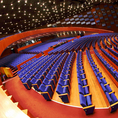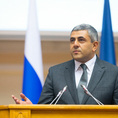
Tourism leaders from across the public and private sectors came together at the World Travel Market (WTM) in London (ExCeL London) for a high-level discussion on tourism’s role in rural development, the challenges and the opportunities. The Ministers’ Summit on “Technology for rural development”, hosted by the World Tourism Organization (UNWTO) in partnership with WTM, focused on tourism innovation and technology and their place in empowering rural communities.
The Ministers’ Summit was held as the UNWTO works with its Member States and alongside its fellow United Nations agencies to face up to the challenges posed by rising levels of urbanization. According to the UN, 68% of the world’s population will live in cities by 2050. In many places, this has meant rural communities are “left behind”, and tourism has been identified as a key means of bridging the rural-urban divide by creating jobs and boosting economic sustainability.
Given the growing interest in rural development, the event, the 13th Ministers’ Summit held by UNWTO in partnership with WTM, attracted a large audience of delegates. Alongside 75 Ministers and Vice-Ministers of Tourism, members of the global media joined senior travel industry professionals for the high-level discussions, which were moderated by Nina Dos Santos, CNN’s Europe Editor.
Opening the Summit, Mr. Pololikashvili said: “Globally, poverty is overwhelmingly rural. This means, if we are serious tourism being a driver growth and development, we must look outside of our cities: We need to work together to help even the smallest community enjoy the many and varied benefits that tourism can bring.”
Participants from both the private and public sector explored the potential benefits of digital technology, agreeing that innovation and knowledge dissemination will be vital for bridging the rural-urban divide. Alongside private sector leaders, the public sector was represented by highest-level tourism representatives from Albania, Bolivia, Colombia, Greece, Guatemala, Panama, Portugal, Saudi Arabia, Sierra Leone and Yemen, in addition to Gloria Guevara, President and CEO of the World Travel & Tourism Council (WTTC) and UNWTO Secretary-General Zurab Pololikashvili. Both public and private sector participants were united in their commitment to ensuring tourism’s contribution to rural development is geared to leaving no one behind.
At its recent General Assembly, UNWTO announced “Rural development and tourism” as the theme for World Tourism Day 2020, the global observance day celebrated every 27 September and underscoring tourism’s socio-economic relevance.
Against this backdrop, the outcomes of this year’s Ministers’ Summit at World Travel Market will serve as the foundations upon which to build the overarching thematic angle for many of UNWTO’s actions and initiatives around the world.
In the photo: UNWTO Secretary-General Zurab Pololikashvili. (c) World Travel Market London.
Amadeus announced that it has completed the acquisition of TravelClick. The transaction has now received all necessary regulatory approvals, including competition clearance in all relevant markets.
Board of Directors of the International Congress and Convention Association (ICCA) has selected Senthil Gopinath to serve as the organisation’s new CEO. He will begin the new role in April 2019.
The Hague will be welcoming the Global Entrepreneurship Summit (GES) on 3-5 June 2019. At the GES, around 2,000 entrepreneurs, investors and other participants from all over the world will come together at the World Forum in The Hague, The Netherlands.
African Member States met ahead of the General Assembly to plot a course for the future of tourism for the continent.





